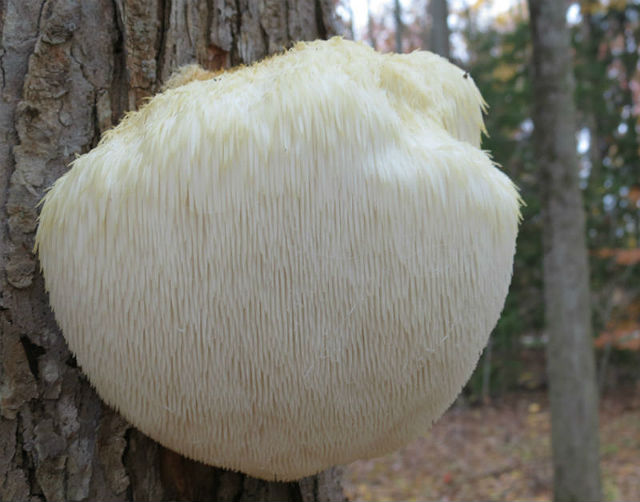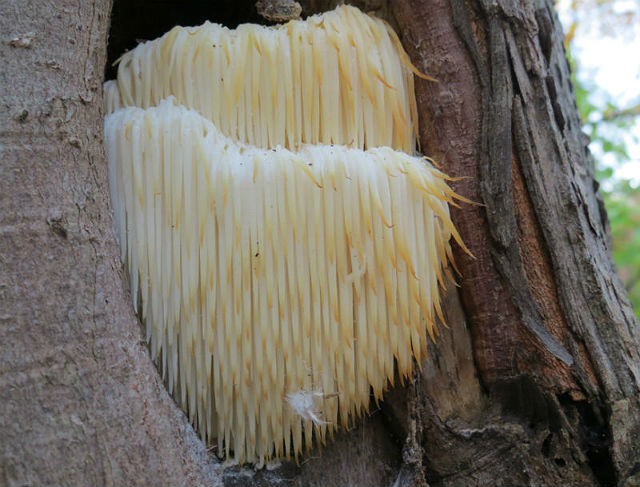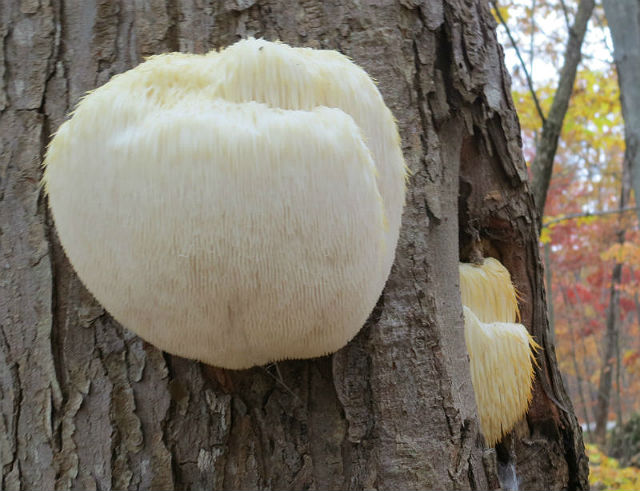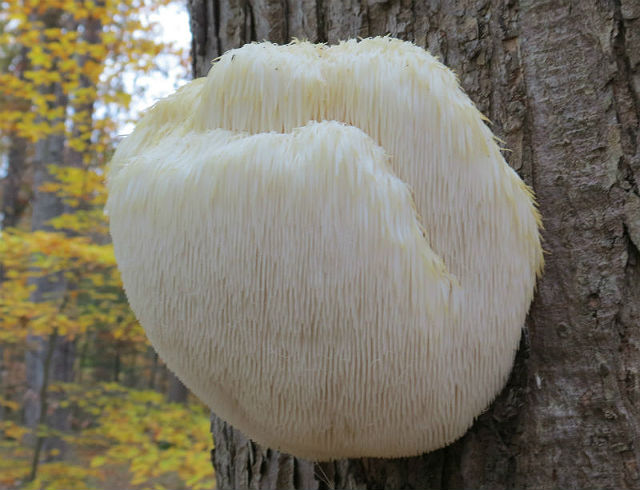While hiking in Brecksville Reservation, I caught sight of a grapefriut-sized odd looking fungus that I’ve never seen before. It usually grows alone or in pairs, fruiting from the wounds of living trees (especially oaks) in late Summer and Fall.
Native to North America, Europe and Asia, it can be identified by its icicle-like projections, its appearance on hardwoods and its tendency to grow a single clump of dangling spines.
About a dozen studies have been published on the neuroregenerative properties of Lion’s Mane Mushroom since 1991; tests have confirmed that it stimulates nerve regeneration.
This historical Chinese medicine is developing a following in the world of modern smart drugs. It is also very tasty to eat.
Like all fungi, Lion’s Mane Mushroom is a vital decomposer in the ecosystem, breaking down dead organisms and biological waste and freeing nutrients for use by other organisms.
This mushroom has a variety of common names, including Bearded Tooth, Old Man’s Beard, Satyr’s Beard, Monkey Head, Bear’s Head, Sheep’s Head, Hedgehog Fungus, Tree Hedgehog and Pom Pom.






